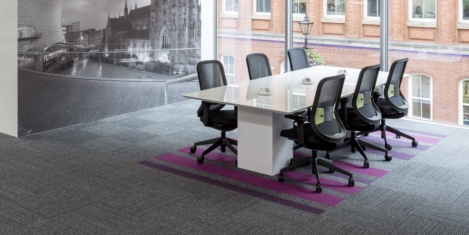To provide the best experiences, we use technologies like cookies to store and/or access device information. Consenting to these technologies will allow us to process data such as browsing behaviour or unique IDs on this site. Not consenting or withdrawing consent, may adversely affect certain features and functions.
The technical storage or access is strictly necessary for the legitimate purpose of enabling the use of a specific service explicitly requested by the subscriber or user, or for the sole purpose of carrying out the transmission of a communication over an electronic communications network.
The technical storage or access is necessary for the legitimate purpose of storing preferences that are not requested by the subscriber or user.
The technical storage or access that is used exclusively for statistical purposes.
The technical storage or access that is used exclusively for anonymous statistical purposes. Without a subpoena, voluntary compliance on the part of your Internet Service Provider, or additional records from a third party, information stored or retrieved for this purpose alone cannot usually be used to identify you.
The technical storage or access is required to create user profiles to send advertising, or to track the user on a website or across several websites for similar marketing purposes.
 Today is Coming Out Day and as part of a greater drive for diversity, the Royal Institution of Chartered Surveyors (RICS) has launched a new digital hub designed to help its members create more inclusive workforces. To underscore the need for greater diversity, RICS cites a 2015 survey carried out by the Architects’ Journal, just 16 percent of gay employees believe the industry is inclusive of LGBT workers, up to a third feel that their sexuality creates barriers to career progression and 85 percent claim to have encountered homophobia at least once during their careers.
Today is Coming Out Day and as part of a greater drive for diversity, the Royal Institution of Chartered Surveyors (RICS) has launched a new digital hub designed to help its members create more inclusive workforces. To underscore the need for greater diversity, RICS cites a 2015 survey carried out by the Architects’ Journal, just 16 percent of gay employees believe the industry is inclusive of LGBT workers, up to a third feel that their sexuality creates barriers to career progression and 85 percent claim to have encountered homophobia at least once during their careers.


































October 7, 2016
Are we seeing the workification of home or the homification of work? 0
by Anna King • Comment, Flexible working, Workplace design
More →